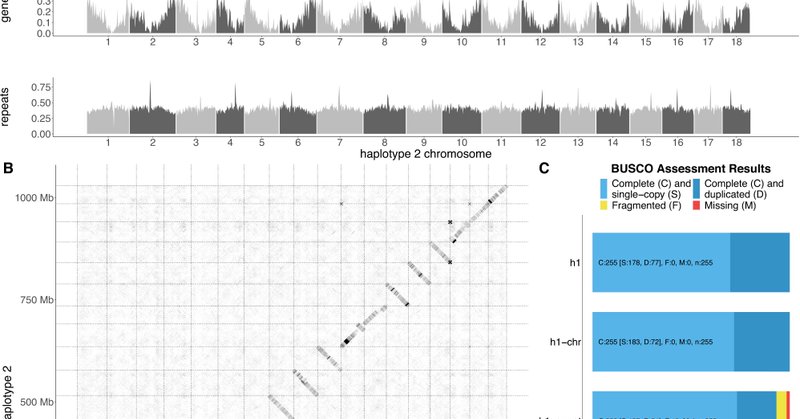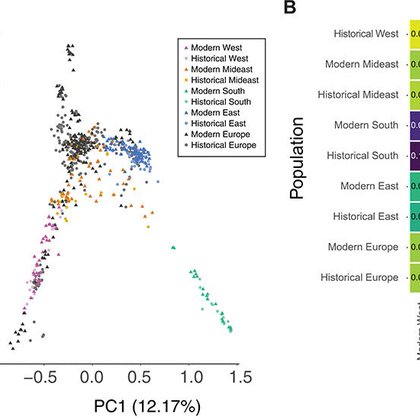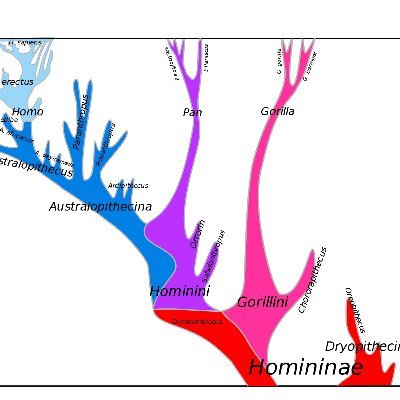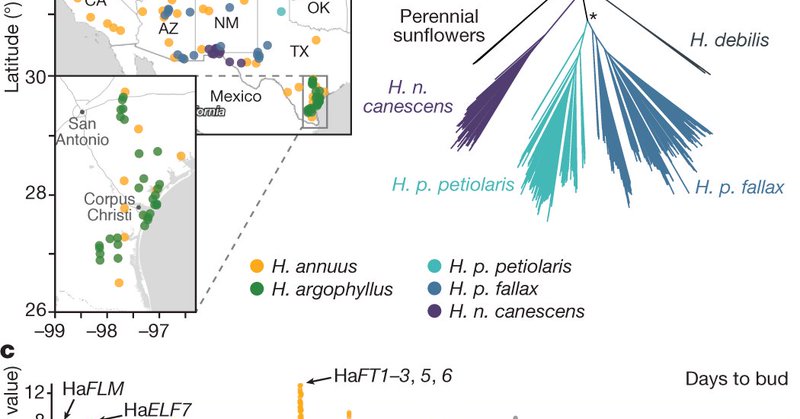
Kay Hodgins
@shaky_dingo
Followers
376
Following
238
Media
2
Statuses
170
Senior Lecturer at Monash University. I study evolution, invasion, genomics and plant sex. I am a fan of public radio, running and anagrams.
Melbourne
Joined November 2010
Our #ragweed haploblocks paper is out! We used #herbarium samples to show that this major cause of hay fever has used large inversions to adapt during its invasion of Europe. Super proud of this work @MuseumEvoGen @BiekerVanessa @chocci_boi @NatureComms.
nature.com
Nature Communications - Ambrosia artemisiifolia is an invasive weed and primary cause of pollen-induced hayfever. Here, the authors report its chromosome-level phased genome assembly, examine...
1
14
45
RT @Monash_Science: Rogue ragweed multiplies as a result of species supergenes 🌱🧬: Supergenes present in ragweed enable the invasive specie….
0
1
0
RT @Monash_Science: .@MonashBiol scientists have found that ragweed's strong ability to adapt and thrive in new environments may have impli….
0
3
0
I giving a public talk this Wednesday. It is about my research and my late partner's contribution to this research and so much more 🐇. Please come if you are in Melbourne @QueersInScience
1
4
26
RT @QueersInScience: How FAB is this lineup for our @midsumma Science at the Edge lecture series?!🌈🥳. We're so excited to hear from Deanne….
0
5
0
RT @manpreetkdhami: Structural variants continue to emerge as important mechanisms to investigate for plant invasions - Johnathan Wilson(@c….
0
1
0
RT @MuseumEvoGen: It's finally out! @BiekerVanessa's enormous popgen study of recent rapid adaptation in 655 resequenced invasive plant gen….
science.org
The invasive success of ragweed in Europe was facilitated by release from enemy microbes and interspecies hybridization.
0
18
0
Achoo! Check out this massive effort led by @BiekerVanessa @MuseumEvoGen and I to uncover the genomic basis of invasion in ragweed using hundreds of historic and modern genomes @chocci_boi @MonashBiol
science.org
The invasive success of ragweed in Europe was facilitated by release from enemy microbes and interspecies hybridization.
0
4
14
RT @evoecolab: 1st paper of the #GlobalUrbanEvolution project came out today in @ScienceMagazine. How fitting to have clover on the cover f….
0
258
0
RT @MuseumEvoGen: In this preprint on plant invasiveness, during 5 years @BiekerVanessa sequenced 650 ragweed genomes, incl. 300 historic h….
biorxiv.org
While invasive species are a key driver of the global biodiversity crisis, the drivers of invasiveness remain debated. To investigate the genomic basis of invasiveness in plants, we use the invasive...
0
6
0
Thanks for the perspective piece by @JohnStinchcombe and @imengyuan on our recent paper on parallel patterns of adaptation in invasive ragweed @lavanboheemen
Population genomics of parallel adaptation @molecology.
0
2
8
RT @MarcoTodescoCnv: It is finally out! Gigantic haploblocks/inversions do all the heavy lifting in sunflower adaptation (well, a lot of it….
nature.com
Nature - Resequencing analyses of three species of wild sunflower identify large non-recombining haplotype blocks that correlate with ecologically relevant traits, soil and climate characteristics,...
0
56
0
RT @CurrentBiology: Is the #SARSCoV2 #virus undergoing adaptive #evolution during the #COVID19 #pandemic? @Troy_Day Sylvain Gandon, Sébasti….
0
12
0
RT @yuval_sapir: A lack of genetically compatible mates constrains the invasion of Solidago (American goldenrod) in Australia. By @shaky_di….
0
2
0
RT @MonashBiol: New research by @Brechann @shaky_dingo @JohnStinchcombe corroborates past findings that ragweed has been able to adapt to i….
0
1
0






